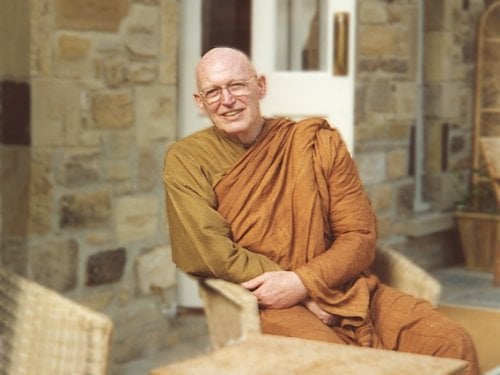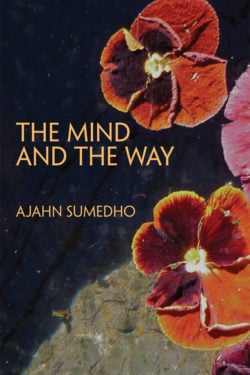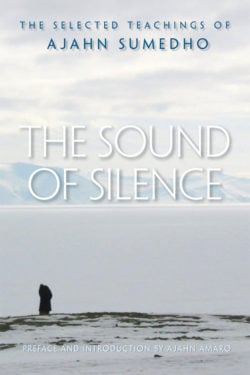Ajahn Sumedho

For nearly fifty years Ajahn Sumedho has embodied the Buddha’s way. As a young man he completed an M.A. at the University of California at Berkeley, was a medic in the Navy, and taught in the Peace Corps in Borneo. For twelve years, beginning in 1966, he studied closely with the renowned meditation master Ajahn Chah, who appointed him to be the first Western abbot of a Thai monastery. Now based in England, he is the spiritual head of a global community of monks and nuns.
Books, Courses & Podcasts
The Mind and the Way
What would life be like if each one of us chose compassion over anger, loving-kindness over hatred, awareness over ignorance? The Mind and the Way demonstrates a radically simple approach to life, one in which we are able to awaken to our true loving nature and delight in the mystery and wonder of the world. With warmth and a wonderful sense of humor, Ajahn Sumedho draws on the experiences of ordinary life to convey Buddhist insights that for 2,500 years have continued to remain vital and pertinent to our lives.
The Sound of Silence
The sound of silence is like a subtlety behind everything that you awaken to; you don’t notice it if you’re seeking the extremes. Yet as we start to become more poised, more present, fully receptive of all this moment has to offer, we start to experience it vividly and listening to it can draw us ever—deeper into the mysteries of now.
Always skillful and good humored, Ajahn Sumedho’s teachings defy boundaries. Anyone—from laypeople looking to deepen their grasp of the Buddha’s message, to lifetime Buddhist monastics—will appreciate the author’s sparkling insights into to such key Buddhist themes as awareness, consciousness, identity, relief from suffering, and mindfulness of the body. The Sound of Silence represents the best of Ajahn Sumedho’s masterful work to help us all see each life with a new and sustaining clarity.


